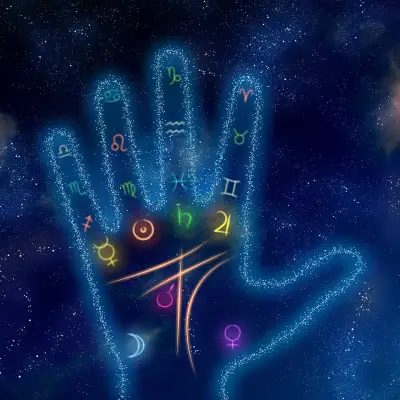The tiger has long captured human imagination with its unparalleled strength, grace, and mystique. Many people turn to tiger symbolism for guidance, understanding, and spiritual insight. Whether you’re drawn to the tiger as a spirit animal, curious about its cultural significance, or seeking its message for your life, this guide explores its spiritual meaning and the powerful energy it represents.
Jump to:
- The Tiger as a Spiritual Messenger
- The Symbolism of a Tiger
- Tigers in Different Cultures
- Is it Good or Bad Luck to See a Tiger?
- What Does It Mean When Tigers Appear Outside Your Home?
- Tiger Numbers and Their Spiritual Meanings
- Tiger Colours and Their Spiritual Meanings
- How to Know if a Tiger is Your Spirit Animal
- Frequently Asked Questions About Tiger Symbolism
- Study Spirit Animals and Totems for £29
Recommended for you!
Best SellersThe Tiger as a Spiritual Messenger
The tiger often symbolises raw power, independence, and primal instincts. As a spiritual messenger, the tiger reminds you to trust your intuition and embrace your inner strength. If a tiger appears in your dreams or meditations, it may be urging you to confront challenges with courage or reconnect with your wild, untamed side.
Tigers are also seen as protectors, guiding you through moments of vulnerability. Their presence can signal the need to reclaim your personal power and act with determination. The tiger spirit animal meaning is one of confidence, resilience, and fearlessness.
The Symbolism of a Tiger

The tiger embodies balance—strength paired with grace and aggression, tempered by patience. It symbolises the duality of life, where power and vulnerability coexist. Its meaning also includes transformation, as it encourages you to shed limitations and embrace your true nature.
In addition to personal power, the tiger represents independence and freedom. If you’re feeling constrained by societal expectations or personal doubts, the tiger’s symbolism can inspire you to break free and pursue your unique path. Its silent yet commanding presence serves as a reminder that strength doesn’t always need to roar—it can reside in quiet confidence.
Tigers in Different Cultures
Tigers have been deeply ingrained in cultural myths and beliefs across the world, often symbolising strength, protection, and spiritual power.
- Chinese Astrology: In Chinese astrology, the tiger is a yang symbol, representing courage, bravery, and energy. Those born under the Tiger zodiac are considered ambitious, competitive, and charismatic, embodying the tiger’s fearless spirit.
- Hindu Mythology: In Hindu mythology, the tiger is closely associated with the goddess Durga, who is often depicted riding a tiger into battle. This image symbolises divine strength, protection, and the triumph of good over evil, highlighting the tiger’s spiritual power.
- Buddhist Beliefs: Buddhism often portrays the tiger as a guardian and protector, representing discipline and inner strength. Its presence in Buddhist teachings highlights its role as a spiritual guide and defender against negativity.
- Korean and Japanese Folklore: In Korean and Japanese folklore, the tiger is seen as a powerful yet kind figure. It acts as a guardian against misfortune, embodying strength and compassion.
Through these diverse cultural lenses, the tiger emerges as a symbol of courage, protection, and spiritual energy, resonating deeply with those who draw inspiration from its majestic presence.
Is it Good or Bad Luck to See a Tiger?

The tiger is often viewed as a symbol of good luck, particularly in cultures that see it as a guardian. Its appearance may indicate a period of success, courage, or personal transformation. However, the tiger’s association with fear and danger also suggests that its presence could be a reminder to confront challenges head-on.
If you encounter a tiger in dreams or visions, consider the context. A calm, watchful tiger may signify inner peace and self-assurance, while an aggressive tiger could point to unresolved fears or obstacles that need your attention.
What Does It Mean When Tigers Appear Outside Your Home?
Seeing a tiger, whether in dreams or symbols around your home, can carry deep meaning. It might indicate that powerful energy is present in your life, urging you to take decisive action. The tiger represents protection and a call to guard your personal boundaries.
If a tiger appears outside your home in a dream, it could symbolise untapped potential waiting to be unleashed. It may also be a sign to stand firm in your decisions and protect what matters most to you.
Tiger Numbers and Their Spiritual Meanings
The number of tigers you encounter can hold distinct spiritual meanings, offering guidance tailored to your personal journey and current circumstances.
- A Single Tiger: Represents individuality and self-reliance. Seeing one tiger may be a call to focus on your inner strength and embrace your independence as you navigate challenges.
- Two Tigers: Symbolise balance and partnership. This could highlight the importance of harmony in your relationships or the need to work together with someone to achieve a common goal.
- A Group of Tigers: Suggests abundance, collective energy, or shared purpose. Encountering multiple tigers might signify a time of collaboration, teamwork, or the necessity of channelling powerful energy towards a meaningful endeavour.
Pay close attention to the context and feelings you experience during these encounters, as they often provide personalised insights. The tigers’ behaviour—whether they appear calm, active, or aggressive—can also hold additional symbolic meaning.
Tiger Colours and Their Spiritual Meanings

The colour of a tiger adds an extra layer of symbolism, reflecting specific qualities and spiritual insights that resonate with your life path.
- Orange Tigers: Represent vitality, ambition, and passion. These are the traditional symbols of energy and drive, urging you to pursue your goals with determination.
- White Tigers: Carry a mystical and spiritual meaning, symbolising clarity, purity, and heightened awareness. Their rare appearance encourages you to seek higher truths and embrace spiritual growth.
- Black Tigers: Symbolise mystery, protection, and resilience. Often seen as guardians, black tigers remind you to trust your instincts and rely on inner strength during times of uncertainty.
Each colour carries its own spiritual message, inviting you to reflect on its significance and how it aligns with your current experiences. Observing a tiger’s colour and presence can provide powerful guidance for your personal journey.
How to Know if a Tiger is Your Spirit Animal
If tigers resonate deeply with you or frequently appear during pivotal moments in your life, they might be your spirit animal or totem. Those connected to the tiger spirit animal often embody qualities such as strength, courage, and a determination to overcome challenges.
- You feel drawn to tigers: Whether through nature, dreams, or symbolic forms, tigers may captivate your attention and evoke a sense of connection or admiration.
- Tigers appear in meaningful ways: They might cross your path in dreams, visions, or imagery during times when you are seeking clarity or support.
- You share their traits: You might identify with the tiger’s independence, resilience, and ability to command presence quietly yet powerfully.
- You value personal power and transformation: Tigers encourage you to embrace your inner strength, confront fears, and grow through life’s challenges.
- Their symbolism resonates with you: Themes of self-reliance, passion, and spiritual courage may align with your personal values and experiences.
To deepen your connection with the tiger as a spirit guide, reflect on their behaviours and symbolic meanings. Meditate on the tiger’s energy, visualising its grace and strength. Spend time journaling about how its qualities relate to your own life. By embracing the tiger’s wisdom, you can channel its transformative power and integrate its teachings into your journey.
Recommended for you!
Best SellersFrequently Asked Questions About Tiger Symbolism
What chakra is associated with the tiger?
The tiger is often linked to the solar plexus chakra, which governs personal power, confidence, and determination. Its energy inspires you to embrace courage and take decisive action in your life.
What emotion does the tiger represent?
Tigers represent a range of emotions, but their energy often embodies courage, determination, and passion. They also symbolise the balance between controlled aggression and calm introspection.
Is the tiger a yin or yang symbol?
The tiger is primarily considered a yang symbol in Chinese philosophy, representing active energy, assertiveness, and masculinity. However, its ability to embody grace and patience can reflect yin qualities as well.
Why are tigers considered sacred in some cultures?
Tigers are revered as sacred in various cultures due to their strength, beauty, and symbolic connection to deities. For instance, in Hindu mythology, the tiger is the mount of the goddess Durga, symbolising divine protection and power.
What is the superstition about tigers?
In some traditions, tigers are believed to ward off evil spirits and protect against misfortune. However, encountering a tiger in unexpected situations can also be seen as a warning to approach situations cautiously.
What does the roar of a tiger mean spiritually?
Hearing a tiger’s roar in dreams or meditations can signify awakening personal power or a call to take bold action. It may represent the need to assert yourself in a challenging situation.
How can I work with tiger energy in my spiritual practice?
To work with tiger energy, meditate on its qualities, such as courage, independence, and resilience. Visualising a tiger or keeping tiger imagery in your space can help you connect with its powerful symbolism.
Study Spirit Animals and Totems for £29
If you’re intrigued by the spiritual meaning of tigers and other animals, why not explore this further? The Spirit Animals and Totems Diploma Course at Centre of Excellence explores animal symbolism and the messages they carry. It can also help you determine which animal is your spirit animal. Enrol today for just £29!













